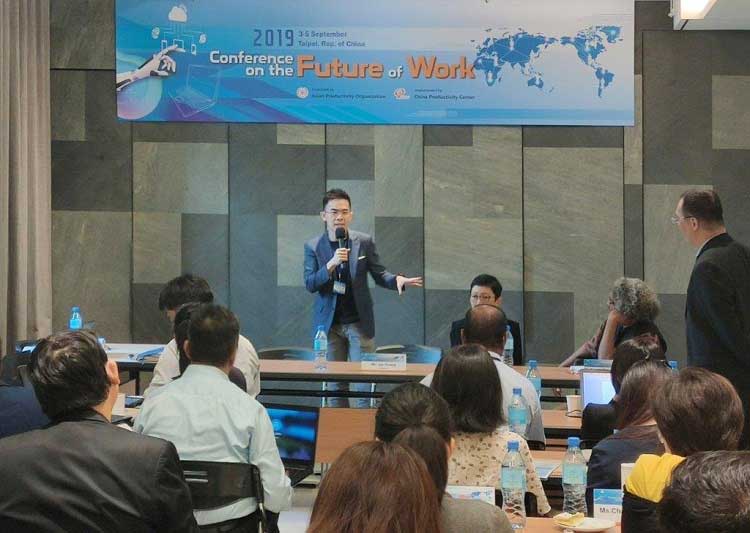
Select Page
 Work plays a central role in modern life. Many social benefits are delivered through jobs, from the more tangible ones such as healthcare and wages to the less tangible, although also important, such as social status and a sense of community, purpose, and meaning. However, as widely noted, the nature of work looks set to change in fundamental ways in coming decades. Analysts are mixed when suggesting possible futures. Will we see sharp jumps in productivity and enhanced prosperity? Or will unravelling social contracts, mass unemployment, and increasing gaps between the global North and South be the norm? Or is some mix of these outcomes and others likely to prevail? Amid this fog of uncertainty, what is apparent is that no single outcome is inevitable. Proactive strategies and thoughtful action may leverage new opportunities and manage negative consequences to improve people’s lives.
Work plays a central role in modern life. Many social benefits are delivered through jobs, from the more tangible ones such as healthcare and wages to the less tangible, although also important, such as social status and a sense of community, purpose, and meaning. However, as widely noted, the nature of work looks set to change in fundamental ways in coming decades. Analysts are mixed when suggesting possible futures. Will we see sharp jumps in productivity and enhanced prosperity? Or will unravelling social contracts, mass unemployment, and increasing gaps between the global North and South be the norm? Or is some mix of these outcomes and others likely to prevail? Amid this fog of uncertainty, what is apparent is that no single outcome is inevitable. Proactive strategies and thoughtful action may leverage new opportunities and manage negative consequences to improve people’s lives.
To expand thinking around the future of work and prepare organizations for potential disruptive change, the APO, in cooperation with the China Productivity Center (CPC), organized a Conference on the Future of Work. It was held 3–5 September 2019 in Taipei with 34 participants from 14 APO member countries. They explored the threat of automation and technological unemployment, possibilities of reskilling and lifelong learning, and other issues associated with the changing world of work.
In the opening program, CPC President Dr. Pao-Cheng Chang noted that technology was an important driver for improving productivity. He linked this trend to the CPC’s activities under its Center of Excellence on Smart Manufacturing, which aims to share advanced manufacturing knowledge with other member countries to build up their capabilities.
The conference included six international resource persons: Dr. Jai-Joon Hur, Director-General of the Korean Labour Institute; Dr. Soon Joo Gog, Chief Futurist and Chief Research Officer of SkillsFuture Singapore; Kamran Elahian, Founder and Chairman of Global Innovation Catalyst LLC, Palo Alto, CA, USA; Dr. Anastasia Milodova, Senior Associate (Sustainability Services) of PwC Japan; Dr. Sarath Davala, Vice-Chair of the Basic Income Earth Network, London, UK; and Jay Huang, CEO of Pulsifi, Singapore. Two local resource persons, Dr. Yen-hsin Alice Cheng, Associate Professor and Research Fellow of Academia Sinica; and Dr. Chao-Chiun Liang, Project Director of the Industrial Technology Research Institute, also made presentations and joined discussions. A number of topics related to the future of work were covered: automation; the innovation economy; Industry 4.0; sustainability; changing demographics; the future of learning; the postwork era and basic income; and the future of human resources and talent. The conference presentations, panel discussions, and interactive group activities were supplemented by a site visit to the Industrial Technology Research Institute.
Feedback from conference organizers, resource persons, and attendees mentioned the wholehearted involvement in the discussion sessions and group activities as a sign of how timely the conference was and how the future of work will affect all societies. Participants will integrate the information shared at the conference into employment and industrial policy, development strategies, and initiatives by agencies and departments responsible for higher education, technical and vocational education, and reskilling.